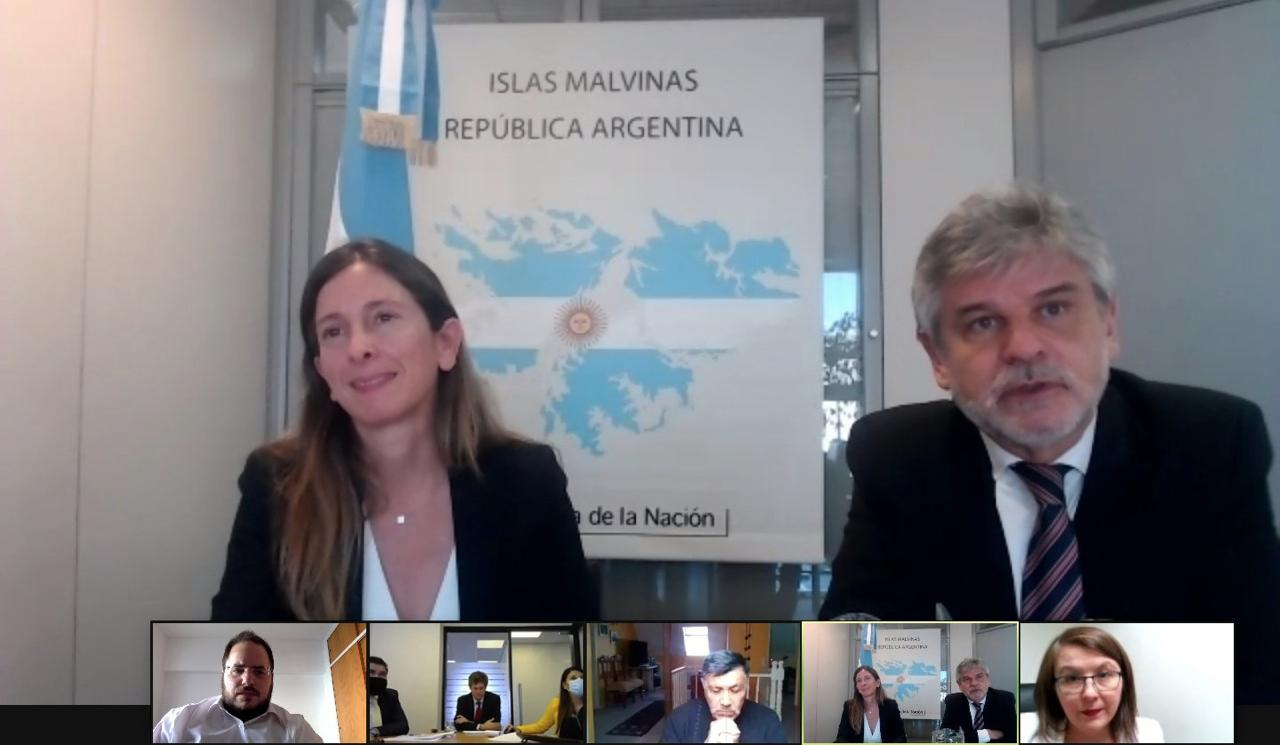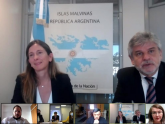The Argentine-Chilean Binational Commission on Southern Marine Scientific Research Cooperation held a virtual meeting to review the joint scientific work done in 2020 and to plan future activities.
During the meeting, held on December 1st, the 2021-2022 Work Plan was approved. It includes the carrying out in 2021 of joint campaigns aboard the new oceanographic boat “Shenu” of the Southern Center for Scientific Research (CADIC-CONICET), and the beginning of the experimental phase of the project in laboratories in both countries aimed at studying the effects of sea acidification on species of environmental and commercial interest, with funding from Prince Albert II of Mónaco Foundation.
The Argentine delegation was headed by Daniel Filmus, Secretary of Malvinas, Antarctica and South Atlantic of the Ministry of Foreign Affairs, and included the Ministry of Science, Technology and Innovation, the Ministry of Environment and Sustainable Development, the National Parks Administration, the National Institute for Fisheries Research and Development (INIDEP), the Naval Hydrography Service, CADIC-CONICET, the government of the province of Tierra del Fuego, Antarctica and South Atlantic Islands, and the National Meteorological Service.
The Chilean delegation was headed by Aldo Cassinelli Capurro, Director of Strategic Planning of the Ministry of Foreign Affairs of Chile, and included representatives of the Ministry of Foreign Affairs, the Ministry of Defense, the Ministry of Environment, the Ministry of Science and Technology, from the Fisheries Development Institute (IFOP), the Research Center Dynamics of High Latitude Marine Ecosystems of Chile (IDEAL) and the provincial government of Antarctica.
The meeting was also attended by the Ambassador of the Argentine Republic in Chile, Rafael Bielsa, and the Ambassador of the Republic of Chile in Argentina, Nicolás Monckeberg Díaz.
During the meeting, the laboratory work and data from the 2019 bilateral campaign aboard the INIDEP vessel “Víctor Angelescu” was also presented and a common format for storage and access to joint scientific data was endorsed. The Commission will continue to work on joint presentations for international conferences related to oceans and in the framework of the “United Nations Decade of Ocean Science for Sustainable Development 2021-2030”.
Finally, Argentina announced that it will give access to the data generated by the Argentine Meteorological Radar (RMA) located in Rio Grande for joint research projects within the framework of the Commission. The RMA, manufactured by INVAP, is the only one that illuminates the Beagle Channel area. The Argentine side offered the participants a training activity on the interpretation of radar images, within the framework of the Bilateral Commission and aimed at scientific research, to be held in the first quarter of 2021.
Ambassadors Filmus and Cassinelli pledged to continue deepening oceanic cooperation, highlighting that the sustainable use and conservation of its vast resources on a solid scientific basis is a shared objective that puts in real value the scientific and technological capacities of both countries for the benefit of their societies.
The purpose of the Binational Commission is to strengthen and facilitate permanent bilateral cooperation in the Argentine and Chilean subantarctic areas and to advance a common scientific agenda aimed at obtaining greater knowledge of the respective maritime areas and contributing to the conservation of the Beagle Channel and marine ecosystems natural resources, as well as the fight against climate change.


